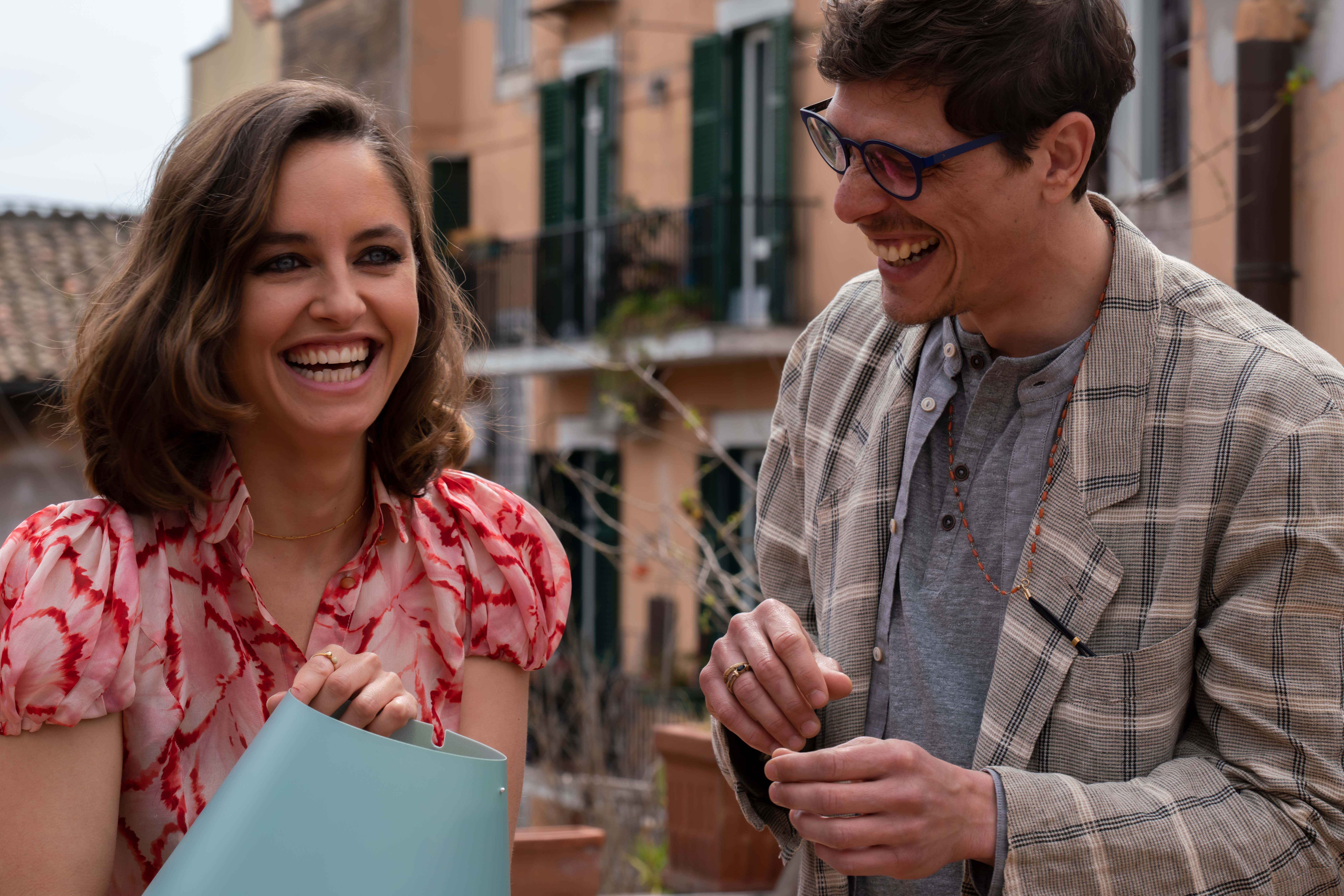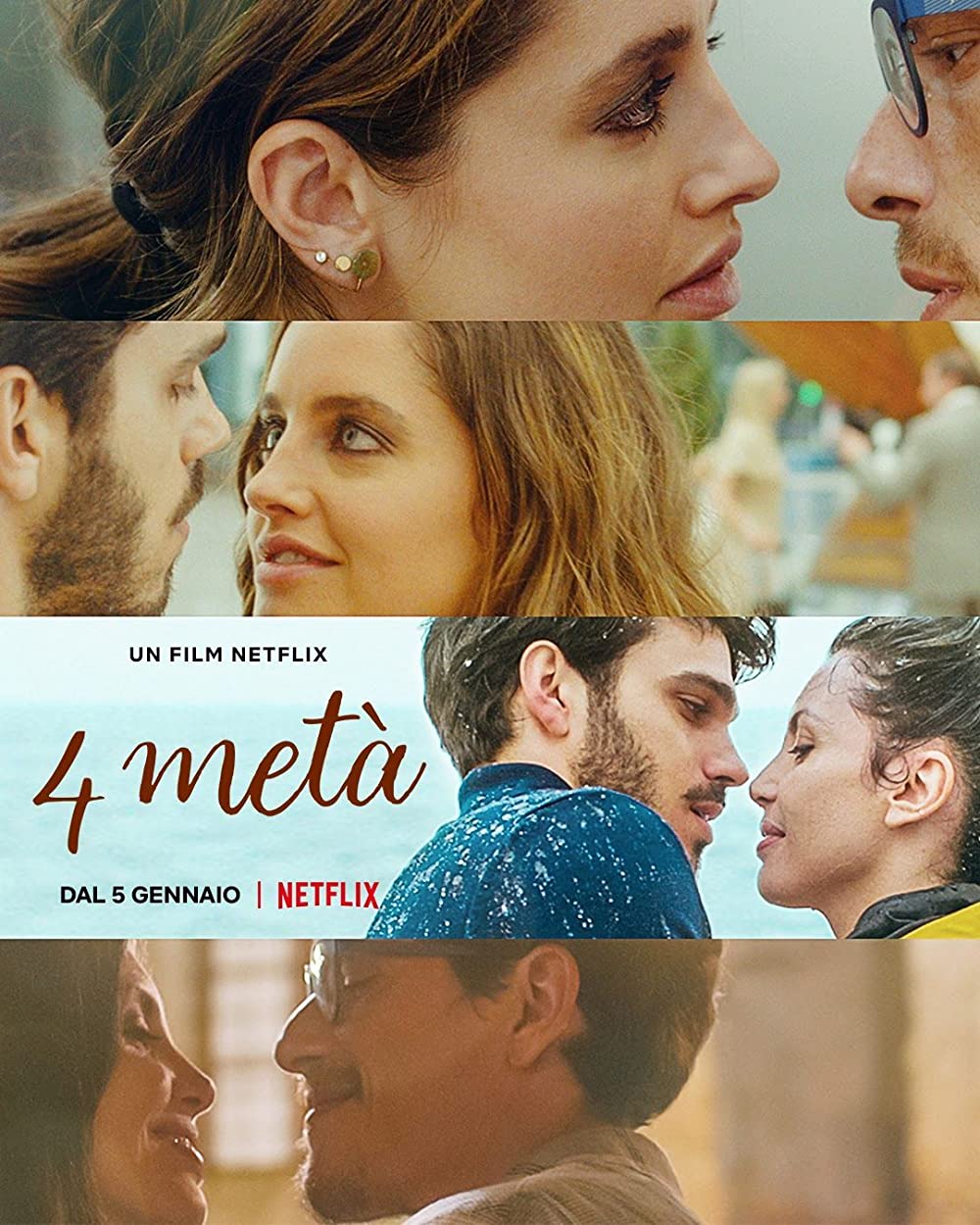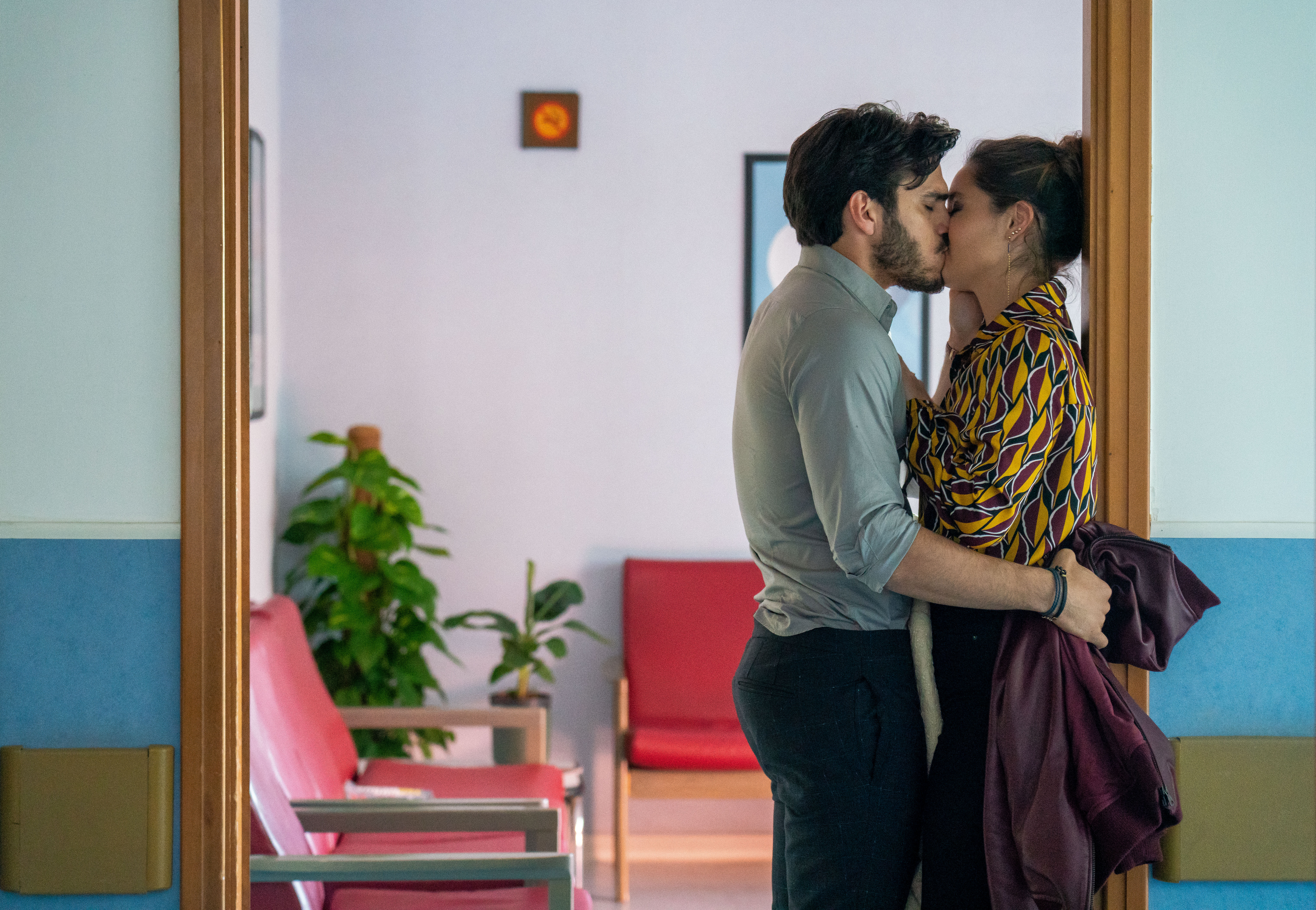Streaming: "Four To Dinner" and the problem with Italian Netflix movies
 Tuesday, January 11, 2022 at 7:00PM
Tuesday, January 11, 2022 at 7:00PM by Elisa Giudici

In the new Netflix movie Four to Dinner, beautiful thirtysomething singles are invited to a married couple's dinner on a picturesque Roman terrace. The terrace is not quite as breathtaking as the one with the hammock facing Colosseo in The Great Beauty, but it's still the kind of terrace mere mortals can only dream off, in Italy or elsewhere.
The married couple hosting the dinner is playing matchmaker, but they have different opinions on which singles should be paired. Would it be better to match their friends with similar temperaments or to test the chemistry between two opposites? The answer is both, at the same time...
 Four To Dinner follows two different scenarios simultaneously, keeping its audience unaware of what has actually happened and what was merely made up by the narrator. Think Sliding Doors, and multiple it by four. Alessio Maria Federici's romantic comedy sounds nice enough to spend a night with but I have my doubts that this movie will find an international audience. Unfortunately, it is a perfect example of how low the bar is for comedies in the contemporary Italian film industry.
Four To Dinner follows two different scenarios simultaneously, keeping its audience unaware of what has actually happened and what was merely made up by the narrator. Think Sliding Doors, and multiple it by four. Alessio Maria Federici's romantic comedy sounds nice enough to spend a night with but I have my doubts that this movie will find an international audience. Unfortunately, it is a perfect example of how low the bar is for comedies in the contemporary Italian film industry.
The new film is written and directed by professionals with some experience in the genre but the result is, generally-speaking, a poor imitation of what you can expect from mainstream romcoms from other European countries. It is distressing to witness how difficult it's become for the Italian film industry to compete. Netflix's Italian-based productions have been unable to change the situation. The vast majority of Italian series and movies produced by Netflix come up short in comparison with French, German, and Spanish-language streaming films.
Why? Four To Dinner provides some insights. Netflix tends to rely on an already existing group of professionals to produce its Italian titles even though they've been unable to come up with a continuous flow of solid movies. The best Italian titles of 2021 in the Netflix catalog are Paolo Sorrentino's Oscar hopeful The Hands of God and Zero Calcare's Tear Along the Dotted Line (an animated mini-series). It is crystal clear that Netflix put money and effort into these two projects, investing in two professionals who have already proved their artistic value. The same level of effort just isn't visible in Four To Dinner.
Like other similar titles in the Netflix catalog, the romcom is a half-hearted attempt to copycat a successful movie with half of the budget and half of the talent. It is difficult to speculate if it was screenwriter Martino Coli's idea or Netflix's request, but it is undeniable that Four To Dinner wants to be the successor of Perfect Strangers. Paolo Genovese's 2016 comedy hit had two couples (plus a single man) sharing a dinner in Rome, with a romantic plot springing from a similar "what if" scenario. (Fun fact: Perfect Stangers already has 18 (eighteen!) international remakes in some stage of production, making it the movie with the most planned remakes in the history of cinema. A record certified by Guinness of Records.)

Unfortunately Four To Dinner lacks the talent of a Paolo Genovese behind the camera and also Perfect Strangers remarkable quintet of actors in front of the camera. The earlier film co-starred Valerio Mastandrea, Alba Rohrwacher, Marco Giallini, Giuseppe Battiston and Kasia Smutniak who are all talented and well known actors here in Italy. But the casting of Four To Dinner feels more concerned with beauty than talent (a recurrent problem in Netflix's Italian productions).
The fatal flaw of the movie is also the script. It relies solely on "the mystery" of the real vs. fake version of the romantic story and is weighed down by multiple expositions including, believe it or not, a recap in the middle of a 90 minute long feature! This is not a complex story but it is sometimes difficult to follow because no one thought to create a way of differentiating the two versions of the story, visually or via editing. The two versions have the same style of photography, the same camera movements, and the same montage. A couple of times, Federici decides to pan from right to left to transition from one version of the story to the other, yet he later uses the same camera movement without switching stories. That's just one example of the craftsmanship problems.

Why is Netflix, new to Italian filmmaking, not betting on more highly proven Italian talent and producers? The same question can be asked of Amazon Prime as their Italian productions are similarly disappointing.
If you are searching for a pleasant romcom to stream, Four To Dinner will pass the time but, trust me, find Perfect Strangers (2016) instead.



Reader Comments (3)
Any hooters in this film?
I can only assume that it's because they don't want to pay the more proven talent their asking fees?
@NATHANIEL R
And yet there are plenty of European Netflix productions made with few money but watch-worthy (or even really, really good!).
Proven talents can be costly, but what about new talents, wannabe talents, talents who has previously failed but deserve a second chance, even just a couple of persons who know what they are doing?
It is beyond me, really.